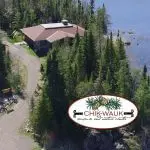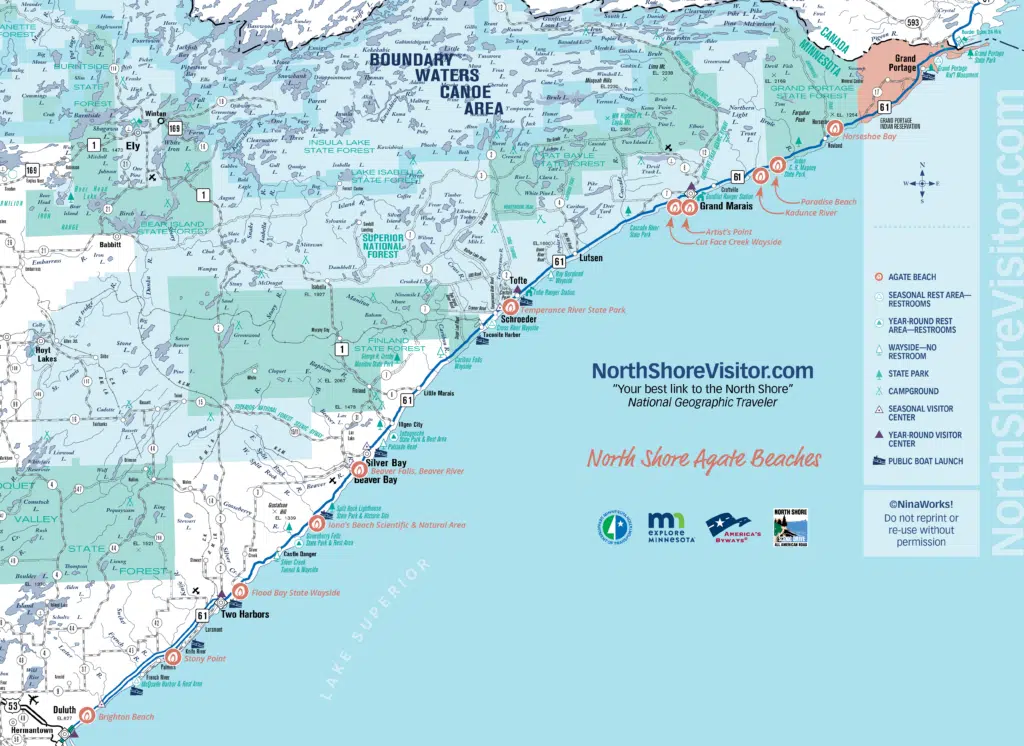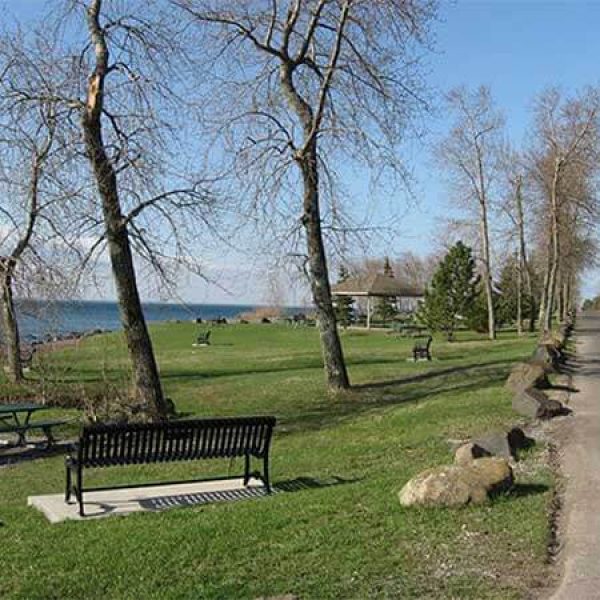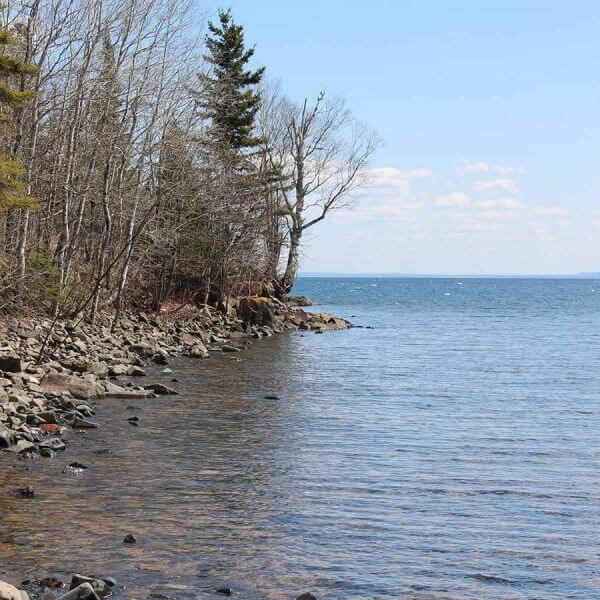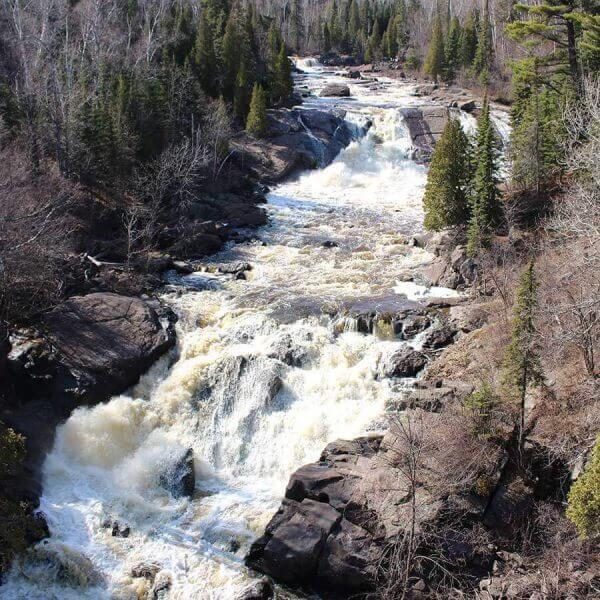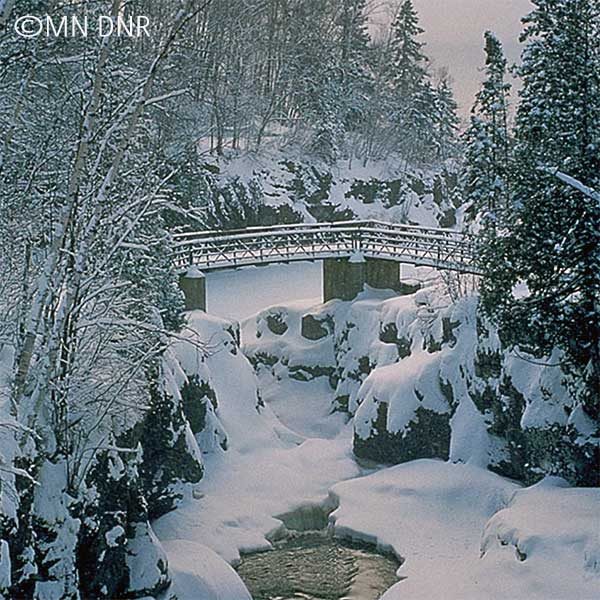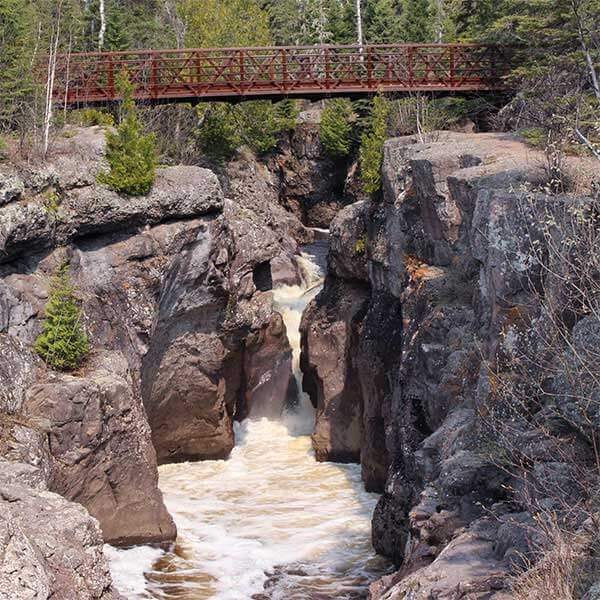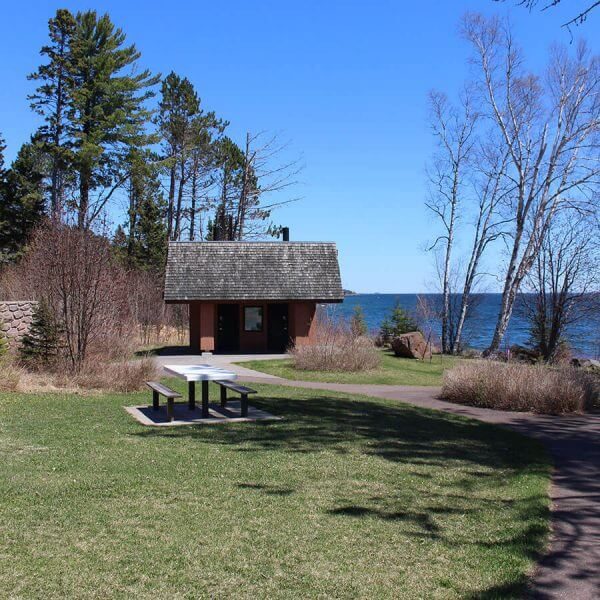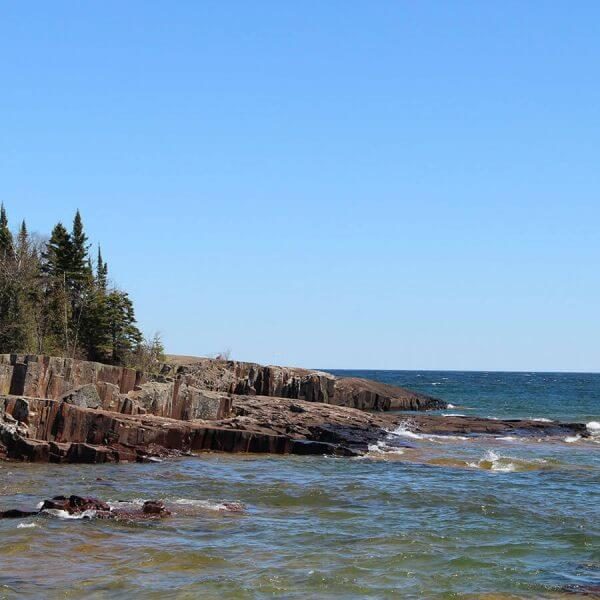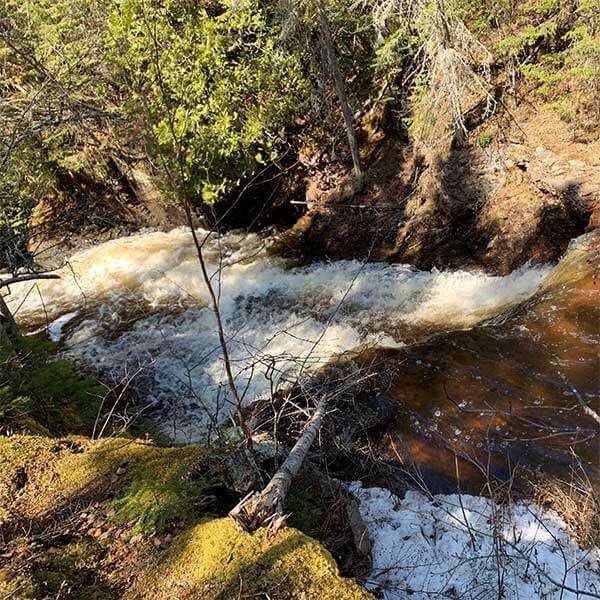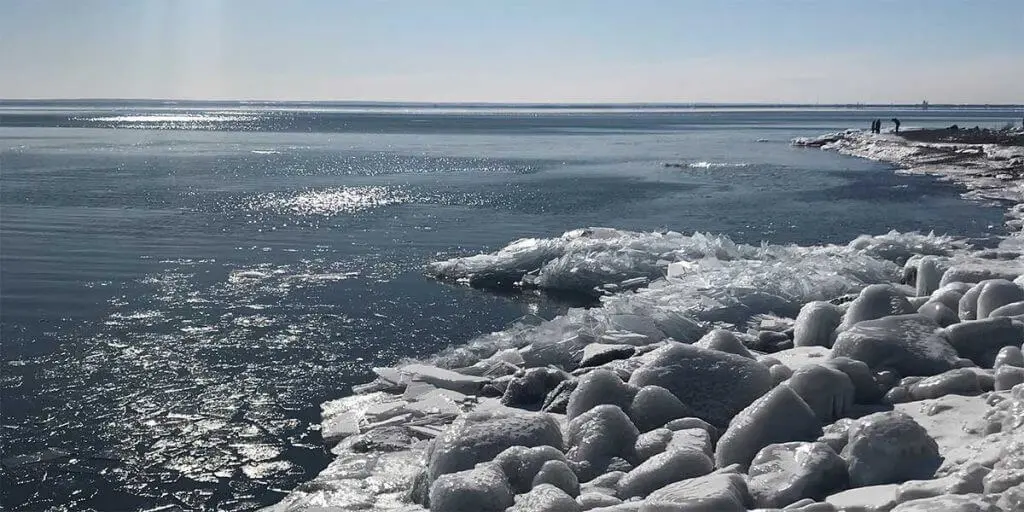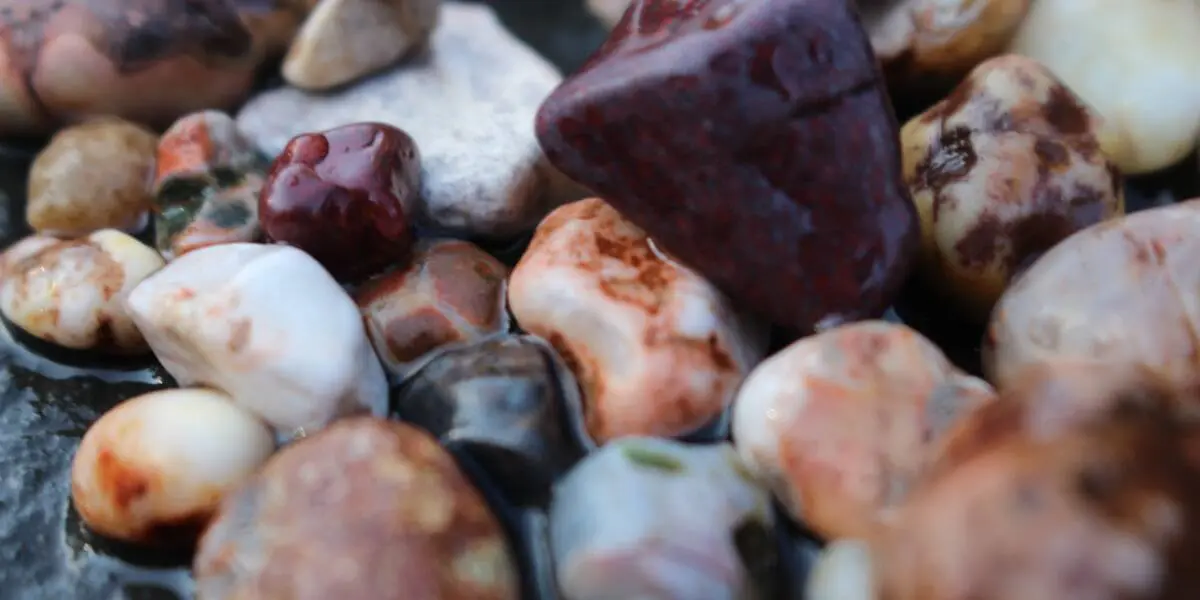
lake superior agates
The Lake Superior Agate is Minnesota’s state gemstone, and for good reason. These banded stones are gorgeous when polished, made into jewelry, or even straight from the beach. With constant waves on Lake Superior, there is never a shortage of new rocks to search through. Agates make a wonderful souvenir of the North Shore.
You can find – or at least search for – agates at a number of different beaches. Head down to the water — some people like to wade in, but be warned, Lake Superior is never particularly warm. Agates are easier to identify when wet, good thing you’re looking next to the largest body of fresh-water in the world!
The best time to look for agates is after a storm or an exceptionally windy and wavy day on the lake. The waves will push new rocks from the lake up onto the beach. If you really want to get into the agate hunt, bring some tools: a gardener’s hand rake/cultivator and a magnifying glass will make searching and identifying your prize easier.
You can keep what you find on public beaches unless it is posted or in designated Scientific and Natural Area.
north shore of lake superior agate beaches
Stoney Point Scenic Drive is a brief one-mile dirt road edging Lake Superior off Scenic Highway 61. It is ideal for wave-watching on stormy days, lake gazing and relaxing on calm days, and picnicking. You will find public access to the big lake toward the east end of the road.
mile 27.5
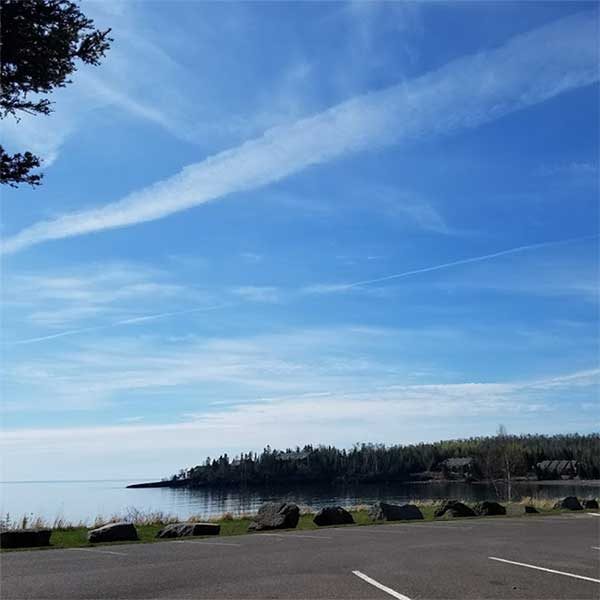
Walk the Beach
Flood Bay State Wayside offers a nice long pebble beach. Amble, search for agates, wade, picnic, relax. The walkway to the beach goes through a wetland that is sometimes home to waterfowl, otters, and beavers. Offers a seasonal restroom.
mile 42.6
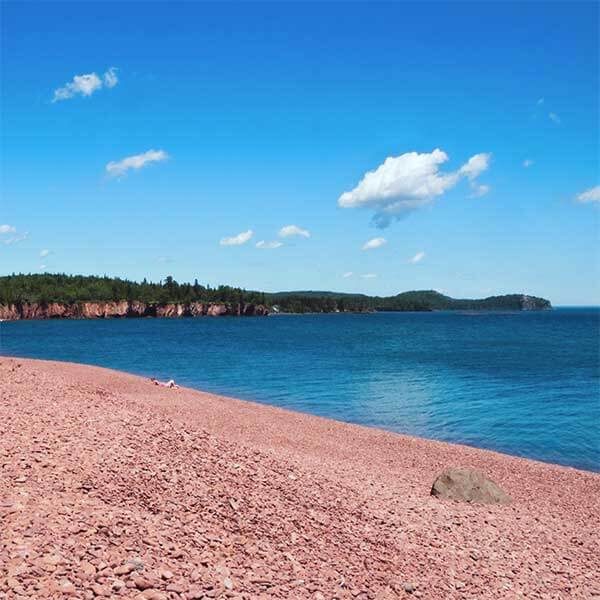
Go to the Pink Beach
Drive right up to this expansive beach, Iona’s Beach Scientific & Natural Area, which is bookended by cliffs, rhyolite, and bedrock to the north and basalt to the south. Nor’easters work away at the northern cliff, breaking off shards of the pink rhyolite and washing them down shore. Once home to Twin Points Resort, the area is named after longtime owner Iona Lind.
MN Scientific and Natural Areas (SNA) protect the last remaining habitat for Minnesota’s rarest plants and animals. Recreation is limited to protect this habitat and natural diversity. While you can look for agates, you cannot keep any from this protected beach.
Stop by the new trailhead, check out the maps and make the short walk to admire views of the Beaver Falls, Beaver River, river mouth and bay. The river drops 300 feet in a series of cascades and falls above the Highway 61 bridge, then enters the sedate bay.
Amazing river gorges that start a few feet inland from the highway, waterfalls, two foot-bridges, hiking, a cobblestone river mouth, camping and hiking. Hike a short way upriver to the amazing gorges, then return south of the highway and walk across the foot-bridge. During spring runoff or after rainy days, the river spray will mist you. Back in the day, this was the only river without a [sand] bar at the mouth, hence the name, Temperance.
Heading northeast, just past Thomsonite Beach, Highway 61 curves left, revealing picturesque Good Harbor Bay, Seagull Rock, and, in the distance, Grand Marais. Use the pull off to admire the view and take photos. A quarter mile farther is Cut Face Creek Wayside, a nice spot for a picnic, an agate search, and skipping stones.
Artist’s Point is the island and tombolo, a spit of land, that makes up the east side of the harbor, including the east breakwall and lighthouse; a drop of wilderness in the lake. So inspiring! Find picnic tables along the East Bay’s cobblestone beaches.
Relax, skip stones, and picnic on the beach. The there-and-back hike follows the Kadunce River with spurs to overlooks and pools. During the warm months of summer, when the water runs low, many locals hike up the river, including climbing the waterfall.
mile 122.8
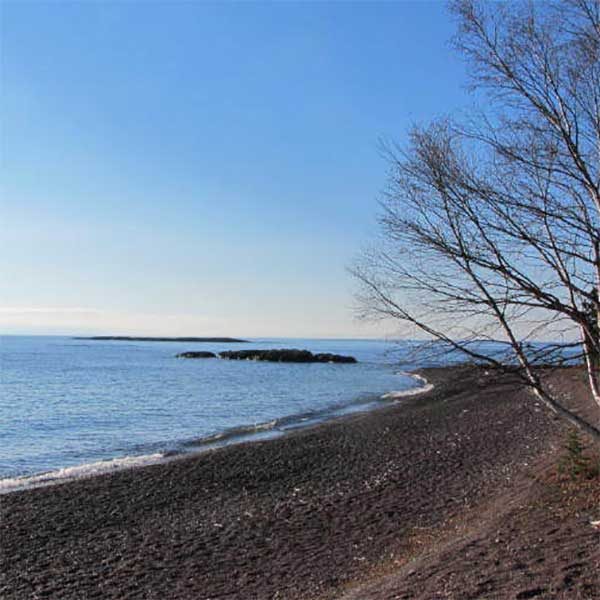
Paradise Beach
A nice stretch of cobblestone beach close to Highway 61 and just farther enough from Grand Marais to be less visited. Admire the view, search for agates, have a picnic; mo amenities so pack out what you take in.
mile 130.0
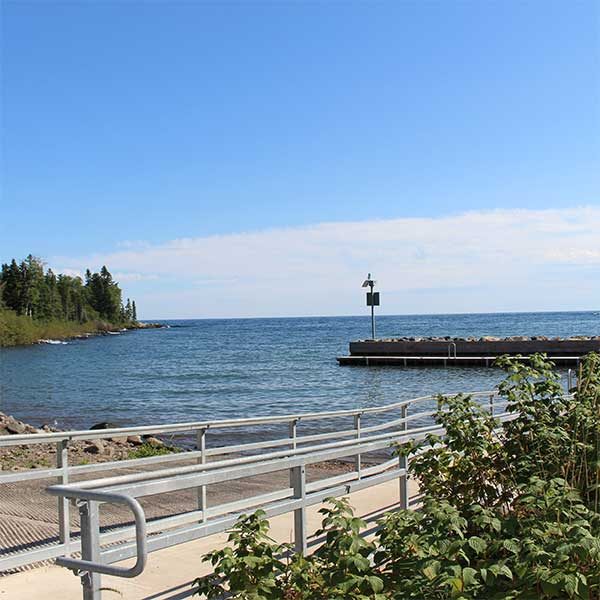
Horseshoe Bay
This sweet little bay is a Lake Superior safe harbor with boat access; no amenities; pack out what you pack in.
To find these locations on a map, click here for a North Shore of Lake Superior map.
note: collecting agates or rocks is prohibited in state parks, state waysides and scientific and natural areas.
north shore agate shops
Can’t find any agates on the beach? Many shops along the North Shore sell agates, mostly as jewelry, but you can find whole agates for sale too.
mile 26
Founded in 1962, Agate City Rocks & Gifts has remained the largest rock shop on Lake Superior's shores for decades, offering more Lake Superior agates for sale and on display than any other shop in the country. Don't miss Agate City, Lake Superior's premier rock shop!
721 7th Avenue | Two Harbors
218-834-2304
mile 51.1
Family owned rock shop since 1946! Specializing in Lake Superior Agate, Thomsonite, Isle Royale Greenstone, lapiday equipment and rock-related items. We sell custom made jewelry, beads, carvings, fossils, and great gifts for collectors. Plus our free museum!
1003 Main Street | Beaver Bay
218-226-4847
mile 108.5
A seasonal shop showcasing local Lake Superior Agates, Thomsonite and Jewelry.
1821 W Hwy 61 | Grand Marais
651-485-9973
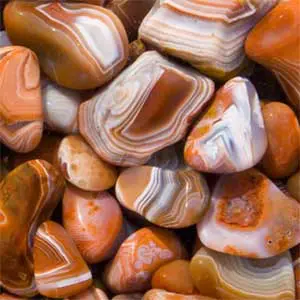
Polished Lake Superior Agates
agate facts
Most Lake Superior agates started to form around 1.1 billion years ago by sulfur and carbon dioxide bubbles in the lava that formed the landscape. These bubbles slowly filled in with layers of other minerals that form the agates we see today. Each band in agate is from a different mineral, and most agates are 99% Microcrystalline Quartz. When you see the orange, rust, brick-red bands, you are seeing rusty iron.
Agates are much harder than the rocks they are formed in, so as the softer basalt and rhyolite erode around them, they come free and wash up on our beaches. The largest-ever Lake Superior agate was over 110 pounds, the size of a small adult.
If you want a pretty, shiny agate, drop them into water. Another common practice is to put agates through a rock tumbler to polish and round them. Some people cut them with a rock saw or break them open to reveals the bands within them, too.
upcoming events



